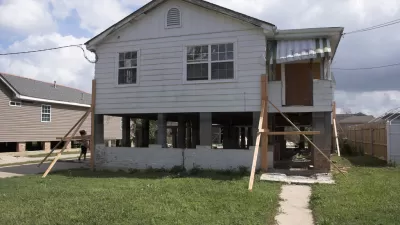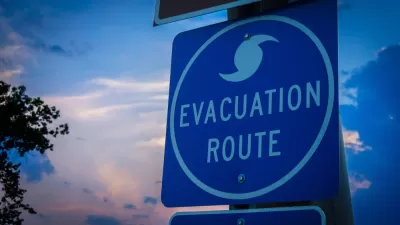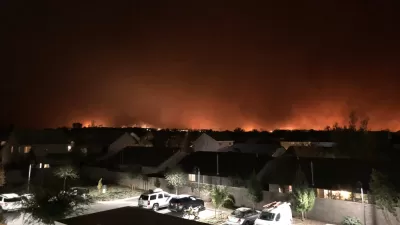Ariel Schwartz explains Recovers, "a logistical management system for disaster recovery," that gives communities tools for matching volunteers with recovery tasks, in the event of a disaster.
Recovers was developed by Caitria O'Neill, in response to her frustrations with matching volunteers with those in need in the aftermath of a tornado striking her hometown of Monson, Massachusetts. Launched in April, after "a four-month stint
in Code for America's accelerator for civic startups," Recovers provides software, training, and
support to communities for disaster preparation.
Localities that sign up
for a Recovers subscription, are "given a personalized site (townname.recovers.org) and
access to a web and mobile platform that allows them to match up
donations and volunteers to the people and places that are in need. When
parts of a community lack power and Internet, canvassers can be sent
out to those locations to record requests via iPhone or paper. Recovers
is working with Captricity, another Code for America startup, to make digitally recording these needs easier," says Schwartz.
"For example, Recovers launched a site for New York City's Lower East Side
after Hurricane Sandy hit. If the disaster relief movement--largely
organized by members of Occupy Wall Street--had signed on before the
hurricane hit, leaders would have had much more time to learn the
Recovers system and think about what they might need post-Sandy. O'Neill
explains: 'I have not put down my email since 4:30 this morning. It's
unsustainable.'"
FULL STORY: Recovers Wants To Help Your Community Prepare For The Next Disaster

Alabama: Trump Terminates Settlements for Black Communities Harmed By Raw Sewage
Trump deemed the landmark civil rights agreement “illegal DEI and environmental justice policy.”

Planetizen Federal Action Tracker
A weekly monitor of how Trump’s orders and actions are impacting planners and planning in America.

The 120 Year Old Tiny Home Villages That Sheltered San Francisco’s Earthquake Refugees
More than a century ago, San Francisco mobilized to house thousands of residents displaced by the 1906 earthquake. Could their strategy offer a model for the present?

In Both Crashes and Crime, Public Transportation is Far Safer than Driving
Contrary to popular assumptions, public transportation has far lower crash and crime rates than automobile travel. For safer communities, improve and encourage transit travel.

Report: Zoning Reforms Should Complement Nashville’s Ambitious Transit Plan
Without reform, restrictive zoning codes will limit the impact of the city’s planned transit expansion and could exclude some of the residents who depend on transit the most.

Judge Orders Release of Frozen IRA, IIJA Funding
The decision is a victory for environmental groups who charged that freezing funds for critical infrastructure and disaster response programs caused “real and irreparable harm” to communities.
Urban Design for Planners 1: Software Tools
This six-course series explores essential urban design concepts using open source software and equips planners with the tools they need to participate fully in the urban design process.
Planning for Universal Design
Learn the tools for implementing Universal Design in planning regulations.
Clanton & Associates, Inc.
Jessamine County Fiscal Court
Institute for Housing and Urban Development Studies (IHS)
City of Grandview
Harvard GSD Executive Education
Toledo-Lucas County Plan Commissions
Salt Lake City
NYU Wagner Graduate School of Public Service





























